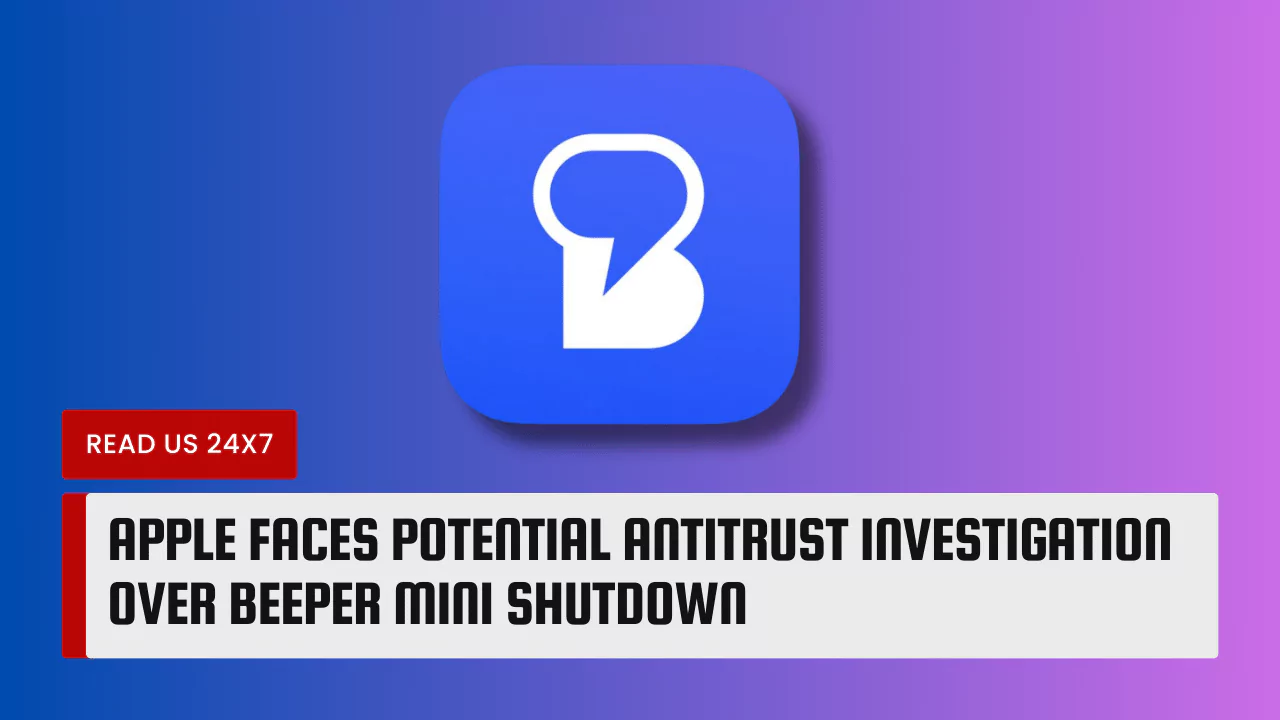Apple is facing a possible antitrust investigation by the US Department of Justice (DOJ) over its decision to shut down Beeper Mini, a popular app that allowed Android users to send and receive iMessage texts. The move has sparked outrage among Beeper’s users and raised questions about Apple’s dominance in the messaging market.
Apple’s Shutdown of Beeper Mini and the Investigation Over iMessage Interoperability
Beeper Mini was a service that enabled Android users to enjoy the benefits of iMessage, such as end-to-end encryption, read receipts, and blue bubble texts, without having to switch to an iPhone. The app worked by using a relay system that connected an Android device to a Mac computer, which acted as a bridge to send and receive iMessages.
Beeper Mini gained popularity among Android users who wanted to communicate with their iPhone friends without compromising on features or privacy. According to Beeper, the app had over 10 million downloads and 2 million active users as of December 2023.
However, on December 18, 2023, Beeper experienced a sudden outage that affected all of its users. The app stopped working and displayed an error message that said: “Beeper Mini is no longer available. Please uninstall the app and contact Apple for more information.”
Beeper’s founder and CEO, Eric Migicovsky, claimed that Apple was behind the outage and accused the tech giant of deliberately blocking Beeper Mini’s access to iMessage. He said that Apple had violated the terms of service of Beeper Mini and threatened to sue the company for damages.
Migicovsky also alleged that Apple had refused to cooperate with Beeper to make iMessage interoperable with other platforms, such as Android and Windows. He said that Apple had a monopoly over the messaging market and used iMessage as a way to lock in its customers and prevent them from switching to other devices.
US Lawmakers Push for DOJ to Investigate Apple’s Conduct
Beeper’s allegations caught the attention of US lawmakers, who have been scrutinizing Apple’s business practices for possible antitrust violations. On December 19, 2023, a bipartisan group of senators and representatives sent a letter to the DOJ, urging it to investigate Apple’s conduct and its impact on competition and consumer choice.
The letter, signed by 12 members of Congress, including Senators Amy Klobuchar and Mike Lee, and Representatives David Cicilline and Ken Buck, expressed concerns over Apple’s potentially anticompetitive behavior and its effect on innovation and diversity in the messaging industry.
The letter stated that Apple’s shutdown of Beeper Mini “raises serious questions about Apple’s dominance in the messaging market and its ability to exclude or disadvantage rivals that offer competing services.” It also noted that Apple’s iMessage “is one of the most widely used and essential apps on the iOS platform” and that “many consumers choose to purchase an iPhone because of iMessage.”
The letter asked the DOJ to examine whether Apple’s actions violated the antitrust laws and harmed competition and consumers. It also requested the DOJ to consider whether Apple should be required to make iMessage interoperable with other platforms and devices, as well as to provide more transparency and accountability for its decisions.
Apple’s Response: Cutting Off Beeper Mini’s Access
Apple responded to the letter and the allegations by confirming that it had indeed cut off Beeper Mini’s access to iMessage but denied any wrongdoing or antitrust violations. Apple said that Beeper Mini had violated its terms of service and endangered the security and privacy of its users.
Apple said that Beeper Mini had used an unauthorized and unsupported method to access iMessage, which posed a risk of data breaches, hacking, and phishing. Apple also said that Beeper Mini had misled its users by claiming that it offered end-to-end encryption, when in fact it did not.
Apple said that it had notified Beeper of its violations and asked it to cease and desist, but Beeper had failed to comply. Apple said that it had no choice but to terminate Beeper Mini’s access to iMessage, in order to protect its users and its platform.
Apple also defended its decision to keep iMessage exclusive to its own devices, saying that it was a core feature of its ecosystem and a key differentiator from its competitors. Apple said that iMessage was designed to work seamlessly and securely with its hardware and software, and that opening it up to other platforms would compromise its quality and performance.
Apple said that it welcomed competition and innovation in the messaging market, but that it would not tolerate any attempts to undermine its service or violate its terms of service.
The shutdown of Beeper Mini has left many of its users frustrated and disappointed, as they have lost their ability to use iMessage on their Android devices. Some of them have expressed their anger and dissatisfaction on social media, while others have started to look for alternative apps or devices.
Beeper has said that it is working on a solution to restore its service and that it will continue to fight for iMessage interoperability. Beeper has also encouraged its users to contact their representatives and voice their support for the DOJ investigation.
The DOJ has not yet commented on the letter or the investigation, but it is expected to respond soon. The outcome of the investigation could have significant implications for Apple, Beeper, and the messaging industry as a whole.


